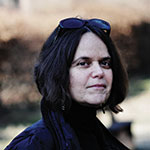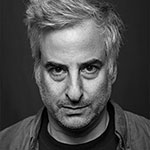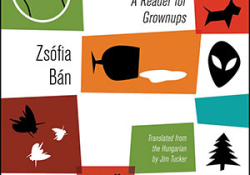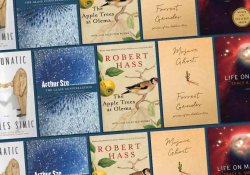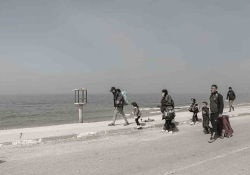Night School; or The Ancient Art of East European Heavy Breathing
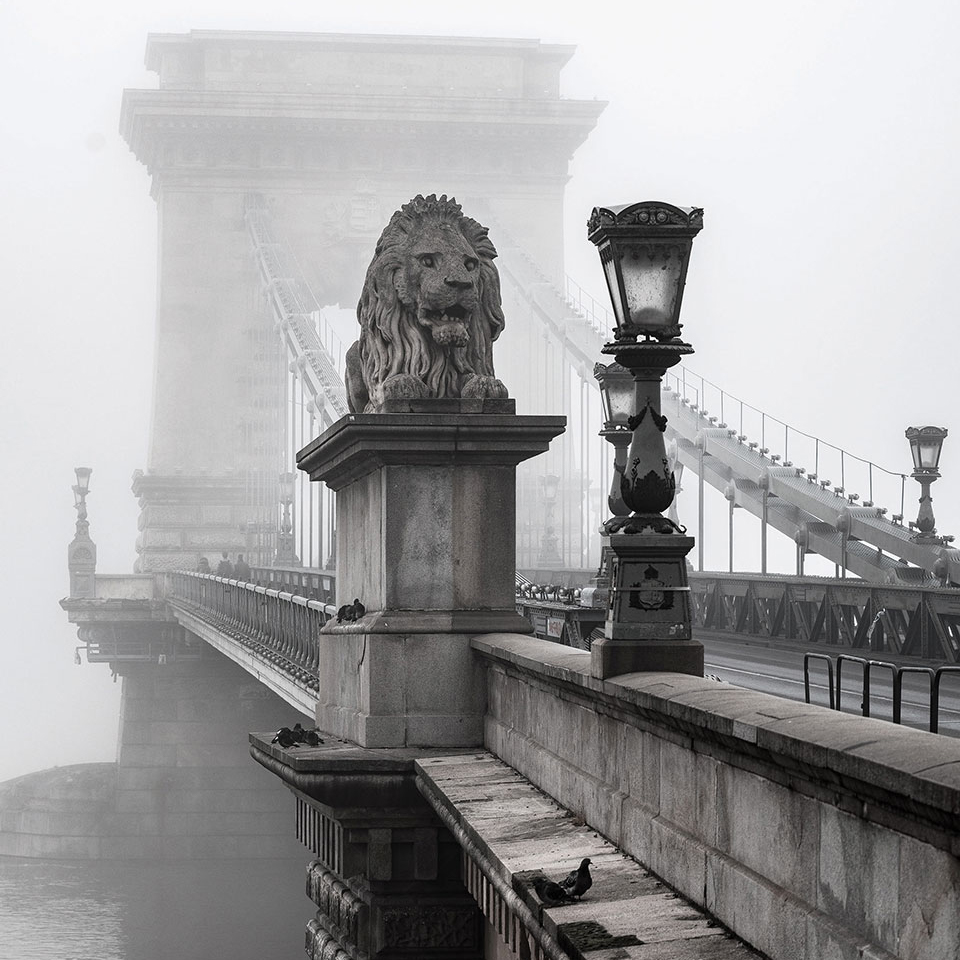
Sometime in the mid-1980s, at the first conference of the European Association of American Studies held behind the Iron Curtain, in Budapest, an American writer managed to say, only half-ironically, how much he envied his East European counterparts, since their words counted for so much: they were so closely watched that they risked being censored, even banned. A little persecution would be so nice once in a while, he said, just enough to make you feel important, to make you more than a voice crying out in the wilderness, to get you noticed. Of course he knew exactly what he was saying, and where he was speaking from; and we thought we understood his longings, and offered a jaded smile. Even so, we probed, just how much is “a little,” or how much is “just enough for you to feel”—in other words, what is allegro, ma non troppo? Does it mean that you’re under surveillance, with regular reports written on you? Or that your name figures on some list or other? That your phone is bugged (if you have a phone at all)? Or does “just enough” mean that publishers and newspapers censor what you write, or that you do some self-censoring, choosing not to write what you actually think? Or does this “enough” require you to get knocked around a little, or blackmailed just a bit (or a lot) to make you an informant, and your mother to do the same? Or do you perhaps need to go to jail? Land others behind bars? So many questions!
So how much is “a little”? How much is acceptable? Inspirational? Heart-warming? How much actually does some good? (See When they go low, we thrive.) How much abuse is acceptable in exchange for a vibrant life of literature and art? Conversely, how much kills that vibrancy, the bubbles, as it were, and leaves us nothing but flat dishwater? How important are these proportions? Or are the proportions irrelevant, and are there only words and sentences, only the truth of language itself, where only subject and object abide? At this, the American writer raised his hand like a white flag and said, with a boyish smile, Okay, you win.
This is more or less where we stand today, in Hungary: these buried stories are coming to the fore, slowly, so slowly.
But we didn’t really want to convince him, much less defeat him. These were just the important questions of the day, questions that everyone had to ask oneself again and again, like a mantra. Of course there were not a few people for whom these questions were never an issue, never something they had to confront. They just wrote and created, their lives focused around the scratching of pen, or pencil, on paper. But sometimes, many years later, it came out (as things sometimes do) that the price they paid for never having to deal with these questions might involve someone else’s compromise, say, in exchange for the freedom of a son or daughter. The compromise of a mother, father, sister, or friend. Stand-in responsibles who paid the ransom. And then some: the privilege. This is more or less where we stand today, in Hungary: these buried stories are coming to the fore, slowly, so slowly. The same can be said for the cover stories as well (as in the case of Péter Esterházy, the first to write on the subject as writer and private citizen, and the first to violate an unspoken taboo). Such stories put your entire prior life, and the lives of those around you, in a completely different light. Now, suddenly, light hurts, to quote another Hungarian writer, Péter Nádas.
As Freud would put it, this is a melancholic society built on lies, mistrust, and sabotage of solidarity, the fuzzy dominion of Every man for himself.
Nearly three decades after the so-called political transition (assuming it happened at all, which today sometimes seems questionable), Hungary is the only post-Communist European country that still has not made fully accessible the files created by the previous regime, the only country to black out the names of informants in these documents, the only country that defends the personal rights of traitors better than the people they betrayed. What kind of political change refuses to examine the past, ignores its own traumas, does not call for responsible parties to be held accountable, refuses to go through the process of mourning? As Freud would put it, this is a melancholic society built on lies, mistrust, and sabotage of solidarity, the fuzzy dominion of Every man for himself, where the victory goes to the stronger, where opponents become enemies to be annihilated, and where the weak have no recourse but the art of creative improvisation. This is where we stand now: these are the hours of heavy breathing when something must urgently be invented, something unanticipated that offers the element of surprise, something we had once learned long ago, but naïvely supposed we could afford to forget. We need improvisational know-how for everyday life, skills that aim for more than mere survival, skills that you can build a nation on. There is no need to impress the importance of know-how upon an American audience. It is no accident this English expression migrated to almost every other language except maybe French. (Oh, the French!)
We need improvisational know-how for everyday life, skills that aim for more than mere survival, skills that you can build a nation on.
So relax. Breathe: inhale, exhale. We just need a refresher course in what we had once already learned. Time to recap know-how again.
✽
Excerpt from Night School (chapter “Self Help or: The Power of Nohoo”):
“Children,” Mrs. Grant used to say, “life is unfathomable. But any actual situation requires actual responses that are quite fathomable indeed. You should always be able to get yourselves out of a fix, but to do that you need to acquire—anyone?—the knowledge you need. Because any situation can be fixed if you have the Nohoo.”
Of course none of us had any idea what Nohoo was, but no one dared ask. The word had such a powerful, suggestive aura about it that we visualized it capitalized from the outset. Perhaps it will come as no surprise if I tell you that it became our class motto. We used it to greet one another in the halls, out in the courtyard, on the street and the tram, at the baker’s and butcher’s. Mrs. Grant became our hero. We called her “General Grant,” which always elicited a permissive, kindly smile. She let us do anything (almost), as long as we were willing to use Nohoo. We looked down on anyone who was lazy or sloppy about it, and shut them out. Learning Nohoo became a question of honor, and anyone whose behavior undermined the project was no longer a member of the pack. In this spirit we voraciously awaited Mrs. Grant’s newest pronouncements each week, and noted them down in our lined, indigo notebooks. Here I shall publish the esteemed contents of my notebook, which I have saved till this day. May the Nohoo be with you.
(1) Should you find yourself at the top of a waterfall, you must do the following:
Take a deep breath just before you go over the edge.
As long as you are in midair, you won’t have too much control over events. Get used to that. Gravity is a stern taskmaster, and the water might be deep.
Dive feet first. Don’t even think about trying it head first or any other idiotic way you usually do it.
Hold your legs tightly together.
Jump out in front of the waterfall as far as is humanly possible. Wrap your arms around your head to protect it. After all, if your head gets injured, you can kiss the Nohoo goodbye.
Start swimming the second you reach the bottom of the waterfall and plunge into the mass of water below. Start swimming before you come up to the surface, because swimming will slow any further sinking. Swim at the top of your lungs. Swim like a bird in flight. Swim like crazy. Swim, my dears, swim! To be perfectly clear: swim downward, with the flow, away from the waterfall. Now I know there’s always someone who tries to be cute and swim around behind it to see what’s back there, but there’s nothing to see there, dear boy, just some very big rocks that will smash up your sweet little noggin till it’s nice and bloody. All right, then.
✽
what is heavy breathing? (Discuss)
“Breathing that is audible through being deep or laboured, especially in sleep or as a result of exertion.” Fine. But at times things happen that make it excruciatingly difficult to assess whether we are sleeping/dreaming (see: nightmare) or whether we’re simply in a situation that causes exertion accompanied by heavy breathing.
Example: When one fine day you see your father’s delicate, learned handwriting, the handwriting of an aristocrat, the handwriting of a member of the best-known and certainly the wealthiest Hungarian historical family in a stack of dog-eared files written for the Communist secret service and produced by years and years of diligent informing, as it happened with writer Péter Esterházy in the reading room of the Hungarian Historical Archives, could anyone possibly blame him for not immediately being able to assess what exactly was causing his heavy breathing; whether he was just dreaming what he saw, what he touched, what he smelled—ah, the smell of aged paper!—or whether it was a simple case of exertion, a momentary failure of the heart. What does a writer (especially if he is one of the best and most loved in Hungarian literature), what does a writer do in such a situation? Well, he turns, to use the title of one of his earlier books in which he mourns his mother’s death, he turns to the helping verbs of the heart. He turns to language, to language that hasn’t been co-opted, appropriated, and sullied by those in power, and writes.
To continue the story, it so happened that Esterházy read these files right after having completed his chef-d’oeuvre, Harmonia Caelestis, a delightfully postmodern novel that addresses the history of his distinguished family throughout the ages and in which all the different protagonists are referred to as my “father” (also offering serious hommage à Donald Barthelme when he intertext-
ually appropriates a full passage of “A Manual for Sons” from The Dead Father). The completion of a masterpiece undoubtedly causes heavy breathing (I wouldn’t know, as I haven’t been there—yet); the reading of files that completely disparage and annul the spirit of your masterpiece undoubtedly causes even more heavy breathing. In such a hapless situation what can a writer possibly do? And the only obvious answer is: to write another book. And so he did, one in which he openly presents his case and which is titled: Revised Edition. Not many would have done so in his place, but he did: noblesse oblige, after all. And then some others followed in his footsteps.
Inhale, exhale; breathe, read.
I remembered this as I was reading through the thick xeroxed package that contained my own father’s files, to find out if he had been an informant or whether it was he who had been informed on.
Hold your breath, then breathe, read, and hope for the best.
But is truth always really the best? Some think not. If you’re lucky, as I was, you’re relieved after looking. If you’re not, you’d often stick with the cover story, you’d rather choose self-imposed blindness. Who can blame those who choose to do so? Certainly not our generation; but the next generation will when they discover there’s a cancer at the heart of their society. Heart of darkness, heart of lies.
what can cause heavy breathing? (Discuss)
The rape of language offers itself as an example. The kidnapping of words, concepts, expressions and forcing them to pleasure power. All of us who were socialized under Communism share this experience and, ironically, all of us who are aware of the current regime’s abuse of power and language in Hungary are sharing it all over again. But as I read about current affairs in the US, it looks like there’s a lot more sharing going on than we expected, and there’s more and more need to be prepared for the abuse and mishandling of language. And all this happening in what is known as the Age of Information—or, as David Foster Wallace prophetically put it, the age of infinite jest. Ironically, it looks like we’re more prepared for this job than those who were lucky enough to grow up in a democracy that guaranteed their right to freedom of speech. We, in turn, were socialized under the code of obsessive-compulsive irony (oci) and disbelief. Perhaps now, finally, we might be able to profit from our previous misadventures, we might be able to share that knowledge, that skill. (I wonder if, similarly to second-generation trauma, there is something like second-generation skill? How deep does it go under your skin?) In any case, the culture of disbelief has been reloaded. Plus ça change, plus c’est la même chose. But the know-how is there—use it.
There’s more and more need to be prepared for the abuse and mishandling of language.
Because in fact, our basic experience was a constant grappling with lies. You had to learn a fluent double-speak, to know the difference between what could be said at home and what could be said at school, and you had to learn to read between the lines, which consequently sharpened your interpretive skills and taught you to be constantly on guard. (I think this is known in the US as critical thinking (?).) The slogan of the young pioneers was “Be prepared!” So, we were. The Hungarian original, “légy résen,” also implies to be on guard. The current political situation in Hungary has deteriorated to such an extent—especially with the government’s almost complete co-optation of the media and most of the judiciary system, as well as the renewed centralization and indoctrination of the school system—that now this skill has to be relearned by the younger generations. Luckily, though, they have a much wider access to alternative sources of information than we did. But they still have to learn to recognize fake news, hoaxes, indoctrination, and abuse of power; they still need to be very much on guard. That can be exhausting, confusing, and certainly accumulates anxiety (and produces heavy breathing), but you either sink or swim.
what is obscene?
what takes your breath away?
how to survive situations that cause heavy breathing, and how to return to normal breathing? (Discuss)
Recently, I shared a residency with an elderly painter, and every evening we talked over dinner, just the two of us. After cautiously sizing up each other’s politics, she decided to put her cards on the table and told me that she was, and I quote literally, “of national feelings.” In current Hungarian political lingo this is a widely used code for supporters of the Orbán regime (a stance that is only rarely equivalent with classical conservatism). I looked up at her over my plate and told her, in English: me too. Registering her slight confusion, I explained myself: I have feelings for the nation too. Okay, she said, but you know what I mean. Yes, I said, I know what you mean, but why not just say it? And so, to my surprise, she did, almost in a whisper, as if she was saying something obscene or illicit: “I’m a supporter of the government.” Great, I said, now we can really start talking.
Inhale, exhale; breathe.
But most importantly: be prepared!
Excerpt from Night School (“On the Eve of No Return” – A secret recording by the dog Laika, before being sent off to die in space):
Now don’t be restless, children. You must know the truth. The truth isn’t pretty, but it’s interesting. So please just be quiet and pay attention.
Going on four days now I’ve been sitting in this structure that, as everybody knows, is ready to crap out at the first spin (crap out in Russian, anyone?). They’ve assigned me two big bulls who constantly have their eyes on me, and I try to throw my voice so they won’t see my lips moving. They don’t want a talking dog, just a flying one.
Today, in the third year of my life, on the eve of no return, they shaved off all my fur with a weak alcohol fluid and painted iodine marks on my skin where the sensors will go. They are going to observe my bodily functions. There will be a surprise or two. Even now, my heart is pounding like a washing machine on spin that is ready to explode. What do they have in mind, four or five days? A week? Oh, please. They will announce this (see: press → media), but of course they know very well that I won’t be able to take it for more than a couple of hours. I heard it this morning, right from the Master himself: they won’t be able to do anything about the overheating. So it won’t be a mercifully prepared bowl of poisoned food that does me in (which is what they will tell the press), nor will it be the mercifully and gradually depleting supply of oxygen, but the glowing, searing, trembling heat. Strapped to my burning throne, I shall bark the International Dog Anthem. Meanwhile, the big bulls will be listening to Berlioz.
Dear Soviet children, I am speaking to you on the eve of no return. My soaring coffin will circle the Earth precisely 2,570 times before burning up in the atmosphere. If you look up at the sky, you shall see the angel of death in the form of a dog. Pick a star, each of you a different one! Tie them together with straight lines, and name that constellation after me. My name, I repeat, is Laika, which means “the Barker.”
The big bulls will be listening to Berlioz.
The big bulls, if you pay close attention, are always listening to Berlioz.
The big bulls are subtle people.
Appearances are deceptive.
Deception is merely an appearance.
Good night, children.
I hope you are all spooked by now.
They will not be able to handle the overheating.
You will not be able to deal with the overheating either.
Good night, little Sputnikites.
Everything is just a matter of perspective.
From above, the Earth looks blue-green.
Injuries requiring more than eight days to heal.
Я ЛΑЙҚА
Which means:
The Barker.
Oleg Gazenko, Laika’s trainer, said the following in 1998: “With the passage of time, I have come to regret it all more and more. We did not learn enough from the mission to justify the dog’s death.”
Calculate the value of more and more. Draw a graph!
Calculate the value of enough.
Finally, write a short essay entitled “What Is My Message for Oleg?” Choose your words carefully!
Budapest
Translation from the Hungarian
Editorial note: From Night School: A Reader for Grownups (Open Letter 2019). Reprinted by permission of the publisher. Night School was included in Kirkus Reviews’ Best Fiction and Best Translated Fiction 2019 lists as well as WLT's own 75 Notable Translations of 2019. This text was originally delivered as a lecture at the Night of Philosophy at the Brooklyn Public Library in February 2019.
